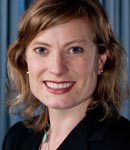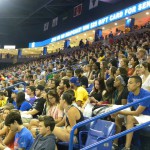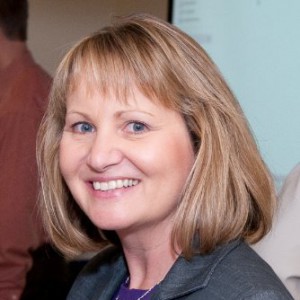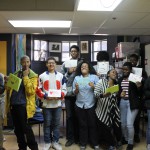Generally, when I talk to potential students about pursuing an education and career in Engineering, I focus on the application of Science and Technology to solve the problems of today and tomorrow in order to make the world a better place. However, I do not recall ever telling a potential Engineering recruit that this profession could make you rich – I mean really rich. But it is nice to read that it is possible. The sales recruiting firm Aaron Wallis recently released an analysis of the top 100 billionaires in the world, listing data on net worth, first job, job category, first degree and degree type.
Tag Archives: engineering
Thriving in College
With convocation being held this week, campus is bustling with the activity of thousands of new students. This includes about 850 new Engineering students at UMass Lowell, including freshmen and transfers. A recent post by Valerie Strauss, “Getting into college was the easy part. Staying there is becoming harder than ever, experts say,” in The Washington Post (August 14, 2017), which draws on a blog from Brennan Barnard, reminded me that the transition to college is not always easy for students. In fact, the article claimed that it is easier to get into college than to stay in college. I would disagree that it is easy to get into Engineering, but there is no doubt that one must be diligent to stay on track towards graduation. Continue reading
Defeating Student Debt through Co-op
The New York Times published an interesting article by Meredith Kolodner this week, entitled “6 Reasons You May Not Graduate on Time.” The author consulted a number of higher education professionals to define the leading causes. I’d like to focus on the first cause listed, “Working Overtime.”
According to the article, about 40 percent of undergraduates work 30 hours per week or more. Informal surveys in our classes support this number. This is a noble endeavor, as the student’s goal is generally to pay for College, including tuition, fees and living expenses. As noted in an earlier blog, the average debt of a student is around $34,000 upon graduation. This average amount of student debt is up nearly 70 percent in the last decade, according to a recent article in the The Wall Street Journal.
The problem is that working nearly full-time makes it difficult for a student to complete the required number of credits each semester to graduate on-time. That is, instead of taking 15 credits or more in a semester, students take a lighter load so they can work more hours. (Taking less than 15 credits a semester is also noted as a cause of delayed graduation by Kolodner.) But the problem is actually worse than taking a reduced load – working so many hours outside of the classroom detracts from time that should be spent on homework, studies and projects. This reduced time to devote to studies can lead to poor, even failing, grades, which in turn leads to repeating classes. The cascading effects should be clear, as graduation is pushed out further and further into the future. Even if one can muddle through the program, GPAs can be destroyed, making it difficult to land that great job upon graduation.
If there ever was a case for co-op education, this is it. Let’s do the finances.
Let’s assume that you register for 12 credits per semester because you want to work 30 hours per week to pay for tuition and fees. You land a retail position paying minimum wage, or $11 per hour in Massachusetts, for a total of $330 per week, which will result in about $265 per week in take home pay. Over the course of one semester (roughly 16 weeks with exams), this will total $4240 of take home pay. Not bad – as over two semesters this will cover roughly 60% of the in state tuition and fees at UMass Lowell. Working full-time over the summer will cover the remainder.
But wait. Let’s assume for a minute that the work truly got in the way of studies, such that the 24 credits, already at least six shy of what is needed in a given year to graduate in four years, is really only 18 credits of work towards the degree, because you had to drop one class each semester. Those 12 credits (6 dropped and 6 not attempted) are now an additional semester on campus – wiping out nearly all the money earned over the year.
How about the co-op option? Take six months, and get a job in your field. In engineering, this can easily mean $20 per hour. At full time, this is $800 per week, or about $612 take-home per week. Let’s assume 22 weeks (need a little time off), such that the total take home pay is $13,464 – enough to cover one full year of tuition and fees (in state) at UMass Lowell (with a few dollars left over). For the other six months, you do not work, so you can take 18 credits during the semester and another 6-9 credits in the six week summer session, before you return to work. With no other distractions, odds are, you will complete those courses successfully.
The only tradeoff now is: do you want to graduate in four years? Or do you want to graduate debt free? If graduating in four years is important (and it is!), then the six-month position cannot be repeated (although an additional 3-month experience is possible) and summers are now dedicated to school. But the 9 months of work looks great on the resume and the roughly $20,000 earned will go a long way in paying down debt. If stretching the time to graduation is OK, then the six-month experience can be repeated numerous times, driving that debt down towards zero.
So, leave that barista job to someone else during the semester. Ace those classes, and land that great co-op job. The results will be evident in your pocket, and on your transcript.
UMass Lowell Wins ADVANCE Grant
With great pride, I want to share that the National Science Foundation has awarded UMass Lowell an ADVANCE-IT grant for its proposal “ADVANCE: Institutional Transformation: Making WAVES: Disrupting Microaggressions to Propagate Institutional Transformation.” According to the proposal’s abstract, the goal is
“to create an academic environment that supports STEM women to achieve to their highest potential by disrupting interpersonal and institutional microaggressions that undercut their productivity and well-being. Despite increasing numbers, women faculty are still underrepresented in academic STEM, predominantly at higher ranks and in leadership. Recent research suggests that microaggressions, as a particular expression of subtle biases, have a powerful, cumulative negative impact on access to research support and advancement.”
The Institutional Transformation program WAVES (Women Academics Valued and Engaged in STEM) proposes to holistically tackle this critical barrier for women in STEM with interventions including surveys, an informational campaign, bystander training, alternative networks for STEM women, and increased transparency and accountability initiatives.
 Congratulations to the investigator team, including UMass Lowell Chancellor Jacqueline Moloney, Ed.D.; Julie Chen, Ph.D.; Meg Bond Ph.D.; Marina Ruths, Ph.D.; and Meg Sobkowicz-Kline, Ph.D.
Congratulations to the investigator team, including UMass Lowell Chancellor Jacqueline Moloney, Ed.D.; Julie Chen, Ph.D.; Meg Bond Ph.D.; Marina Ruths, Ph.D.; and Meg Sobkowicz-Kline, Ph.D.
Dr. Sobkowicz-Kline, Plastics Engineering, will serve as Engineering’s liaison for the WAVES program. To date, $1.6 million has been awarded for this effort.
Welcome Francis College of Engineering, Class of 2020!
Classes have officially started and the campus is buzzing again with activity. It is truly great to see. Having been in the education “business” for over two decades, I truly enjoy the renewal each fall season.
 The College welcomes 829 new undergraduate students this year, with 577 freshmen and 252 transfer students. The total represents a 6 percent increase in new undergraduate students over last fall, including a 13 percent increase in the freshman class. The boost in enrollment was aided by the launch of our new Biomedical Engineering program, with an inaugural class of 40 students.
The College welcomes 829 new undergraduate students this year, with 577 freshmen and 252 transfer students. The total represents a 6 percent increase in new undergraduate students over last fall, including a 13 percent increase in the freshman class. The boost in enrollment was aided by the launch of our new Biomedical Engineering program, with an inaugural class of 40 students.
The Biomed freshmen class boasts the highest High School GPA and second highest SAT score of any incoming major on campus! Additionally, it has an equal number of men and women.
Mechanical Engineering remains the most popular major, with 137 freshmen and 81 transfer students, for a total of 218 new majors. However, the Department of Electrical and Computer Engineering is seeing the greatest increase in students among its two ABET accredited degrees, with 240 (159 freshman and 81 transfers).
 While the growth in our programs is exciting, as it validates the hard work of our Faculty in delivering high quality programs, I am more excited about the continued growth in the quality of our students. The incoming freshmen class has an average High School GPA of 3.7 and an average SAT of 1221. Additionally, this class is 19 percent female, representing a 3.6 percent increase over last year and a 5.1 percent increase over two years ago. This is a trend that I hope to see continue.
While the growth in our programs is exciting, as it validates the hard work of our Faculty in delivering high quality programs, I am more excited about the continued growth in the quality of our students. The incoming freshmen class has an average High School GPA of 3.7 and an average SAT of 1221. Additionally, this class is 19 percent female, representing a 3.6 percent increase over last year and a 5.1 percent increase over two years ago. This is a trend that I hope to see continue.
I look forward to a wonderful 2016-17 academic year!
— Joe Hartman
Mechanical Engineering junior shaping minds and changing lives in Boston’s South End
Samariah (Sammy) Jacobs, a UMass Lowell Mechanical Engineering junior, is doing amazing work getting inner city Boston youth creatively engaged in technology and engineering, as a mentor in the 14 year old Learn 2 Teach, Teach 2 Learn program at the South End Technology Center @ Tent City.
Sammy, fellow L2T/T2L college mentors and youth teachers just won an international Google RISE award for their work and the National Science Foundation is studying their work as national best practices in a Digital Literacies research project.
Each year, 36 teenage youth teachers, who are selected to represent Boston, learn 6 different technology and engineering modules, build projects that solve community issues, then offer free 3-4 week STEAM camps for 700+ Boston elementary and middle school youth at 25 community organizations who would not otherwise offer STEM enrichment.
Sammy was a youth teacher when she was in high school and now is in her second year of working as a college mentor in the program. Last year, Sammy developed a solar energy activity where youth soldered up solar circuits to power the propeller on their own lasercut wood airplane. She just developed two activities and began teaching them to new youth teachers: Teh Squish-ay (using conductive dough to teach electricity and circuits with LEDs, motors, tilt switches, photocells) and Blinkie Paper (uses linkages with circuit stickers to create light up cards).
My sincere appreciation to Dr. Susan Klimczak, L2T Director of Special Programs, for calling attention to Sammy’s inspiring community contributions. She is a shining example of just one of the many reasons why I am so proud to be Dean of the College of Engineering. Look for more information on Sammy and her work at Tent City in future posts.
E-Week, Leadership Colloquium and Faculty Tech Venture Competition, OH MY!
We are full swing into the spring semester and I am happy to report we have LOTS going on! I swear I can hear the office humming some days.
Beginning Monday, we celebrate annual Engineering Week. Six student teams will vie for the coveted Dean’s Cup through five days of challenges and contests. Tuesday, we welcome alumna Robin Antonucci ’79 back to campus as our Dean’s Leadership Colloquium speaker and we will induct over 100 seniors into the Order of the Engineer.
Finally, on Saturday the 27th, we welcome our Engineering Alumni (all of you!) back to the Tsongas to watch the River Hawks take on the BC Eagles (takes a breath). Tickets are still available for the reception in the Talon Club and the game. Click Here to purchase.
If that’s not enough, TONIGHT we are kicking off a new Faculty Tech Venture Program and Competition!
The program will feature six interactive sessions covering various topics that are core to commercializing university technologies using start-up mechanisms. Topics include customer discovery, market research and validation techniques, concept feasibility testing, technology roadmapping and pricing and revenue model development. Sessions are hands-on and interactive, and will be facilitated by the New Venture Development staff and Manning School of Business faculty.
The goal of the program and competition is to help interested faculty (and their research teams) move an idea, invention, or start-up company forward. The winner will be awarded a two-course release in the fall along with additional resources to pursue their project.
The competition will culminate with a Tech Venture Pitch on May 5th. I truly look forward to learning more about faculty projects and supporting their commercialization efforts.Stay tuned for photos of tonight’s event and more information on our faculty projects.
-Joe
Giving Tuesday and the #francis500
I must say, I am pretty excited to announce our plans for #GivingTuesday 2015! US News and World Report defines alumni engagement as a core metric in its university ranking system. To that end, we are determined to recruit 500 NEW alumni donors IN THE MONTH OF DECEMBER.
GIFTS OF ANY VALUE, IN SUPPORT OF ANY FUND in the Francis College of Engineering count towards our goal. I am confident we can make this happen – but we need help from you, our alumni. Here is how you can help:
WEF Board President to Speak Tonight
It’s a busy day on campus! We love it when the office is buzzing with activity!
We also want to welcome Mr. Ed McCormick, President of the Board of Trustees of the Water Environment Federation, the largest water quality professional association in the world, back to campus. Mr. McCormick will deliver a talk on sustainability entitled, “Utilities of the Future,” TONIGHT, beginning at 5:00PM in Alumni Hall (North Campus). Mr. McCormick’s visit is part of a combined Civil and Environmental Engineering Colloquium and ASCE Guest Lecture.
Mr. McCormick graduated in 1977 from the University of Lowell/LTI with a BS in Civil Engineering. In 1979, he received his MS in Sanitary Engineering from the University of California at Berkeley.
For more information on alumni engagement/speaking opportunities, please contact the Dean’s Office at 978-934-2572, or email erin_caples@uml.edu. For more information on our Civil and Environmental Engineering Program, click here.
UMass Lowell Welcomes Alumna Cynthia Conde ’87, ’91
 Today we are honored to welcome alumna Cynthia (Cindy) Conde ’87, ’91 back to campus as our November Leadership Colloquium speaker!
Today we are honored to welcome alumna Cynthia (Cindy) Conde ’87, ’91 back to campus as our November Leadership Colloquium speaker!
Cindy will meet with a small group of student leaders and chemical/biomedical engineering faculty for a working lunch, and then host a seminar open to University faculty, staff and students at 3:00 PM in the Perry Atrium (Saab ETIC).
Ms. Conde is currently serving as the Chief Information Officer and Head of Information Solutions for North America at Sanofi, a global healthcare leader with core competencies in Diabetes, Vaccines, Oncology, Animal Health, Rare Diseases and Multiple Sclerosis, and Consumer Healthcare.
Prior to assuming her current position at Sanofi in October 2012, Conde ascended the ranks at Genzyme Corporation, serving in a number of roles with increasing responsibilities over the course of her 16+ year career with the company.
She has held such roles as: Director of Operations for Genzyme’s Diagnostics Products Division. ERP Program Director and IT Business Partner for Corporate Operations. VP of Information Technology for Genzyme Genetics, VP of Information Technology – Enterprise IT; and VP of Information Technology and Genzyme IS Business Partner for Sanofi’s Global Services Division.
In addition, Ms. Conde served as a self-employed project management, IT, and professional training & coaching consultant for a number of years; and was a Principal of Hawkeye Software Systems, a small, privately owned company that provided case/client management software solutions for law offices.
Prior to that, Cindy was employed as the Director of Manufacturing at CR Bard from 1992-1995 and as a Manufacturing Engineer at Polaroid Corporation’s Camera Division from 1987-1992.
Ms. Conde, a member of the College’s Industrial Advisory Board, earned a Bachelor’s degree in Industrial Technology and a Master’s degree in Manufacturing from the University of Lowell in 1987 and 1991, respectively.
We look forward to your time with us today!
Please join us for our Leadership Colloquium – all are welcome!

